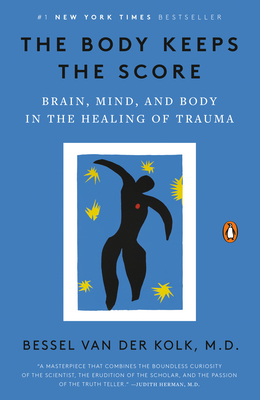
Handbook of Emotion Regulation
Description
This definitive handbook is now in an extensively revised third edition with many all-new chapters and new topics. Leading authorities present cutting-edge knowledge about how and why people try to regulate their emotions, the consequences of different regulatory strategies, and interventions to enhance this key area of functioning. The biological, cognitive, developmental, and social bases of emotion regulation are explored. The volume identifies critical implications of emotion regulation for mental and physical health, psychopathology, educational achievement, prosocial behavior, and other domains. Clinical and nonclinical interventions are critically reviewed and state-of-the-art measurement approaches described.
New to This Edition
*Broader coverage to bring readers up to speed on the ever-growing literature--features 71 concise chapters, compared to 36 in the prior edition.
*Reflects a decade of continuing, rapid advances in theory and research methods.
*New sections on emotion regulation in groups and collectives, specific emotion regulation processes, nonclinical interventions, and emotion regulation across disciplines.
*Increased attention to the role of emotion regulation in culture, and broader societal issues.
Praise for Handbook of Emotion Regulation
"Biting one's tongue, controlling tears, and suppressing anger are emotion regulation processes shaped over millennia. Given the importance of this uniquely human strategy, it is surprising that researchers only recently have turned their efforts to studying the why, when, and how of emotion regulation. With 71 clear, concise chapters, Gross and Ford take scholars and students on a scientific journey through all there is to learn about this booming research area. The third edition of this preeminent handbook will be absorbed, borrowed, and dog-eared by eager readers looking for the latest on the science of emotion regulation."--Wendy Berry Mendes, PhD, Department of Psychology, Yale University
"Whether you are a researcher, teacher, therapist, or student, this volume is a gold mine of vital information. That’s because emotion regulation is at the very heart of effective functioning, the successful meeting of goals, and satisfaction with life. As I surveyed the third edition's table of contents, I couldn’t wait to hear the latest findings from the top scholars in the field. This is truly a landmark volume."--Carol S. Dweck, PhD, Lewis and Virginia Eaton Professor of Psychology, Stanford University
"This brilliant and comprehensive handbook brings together the striking progress made in understanding emotion regulation. The book spans the field, from emotional functioning in neurological patients to the regulation of collective emotions. It showcases the robust science that is revealing how the many facets of emotion regulation shape every aspect of our lives. A 'must read' for anyone interested in this vital topic."--Dacher Keltner, PhD, Department of Psychology, University of California, Berkeley
"The third edition of this handbook, like the two previous editions, is a superbly edited reference. It's a perfect resource for anyone interested in exciting developments, pressing questions, and opportunities for powerful interventions in the area of emotion regulation."--Lisa Feldman Barrett, PhD, University Distinguished Professor of Psychology, Northeastern University
“Gross recruited an impressive array of authors who are well-known for making contributions to the study of affect and emotion....Ideal for graduate courses or seminars on emotion regulation.” (on the first edition)
— Journal of Social and Clinical Psychology
“This volume is a valuable reference for researchers and clinicians interested in either healthy or unhealthy management of emotions. It also would be an excellent text for graduate seminars devoted to the topic of emotions.” (on the first edition)
— Journal of the American Medical Association

